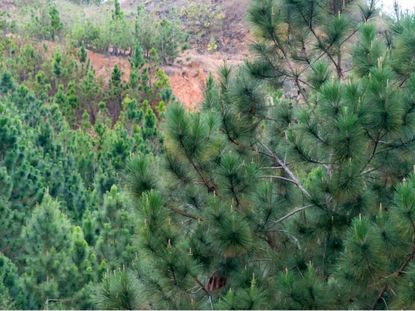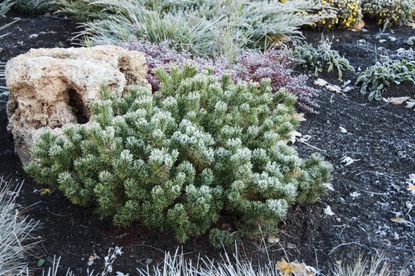Pine
Often used as a generic name for conifers, pine trees actually belong to their own genus, Pinus. Sometimes growing to incredible heights, pines are popular landscape trees. We have all the info you need to grow them, including pine problems, care, and varieties suited to your neck of the woods.
-
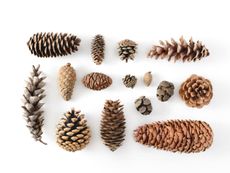
Can You Eat Pine Cones From Any Pine Tree?
Are pinecones edible? What parts of a pinecone can you eat? Click here to learn more.
By Amy Grant
-
Twisted White Pine Trees: Growing Contorted White Pines In The Landscape
Contorted white pine is a type of Eastern white pine that has a number of attractive features. Its biggest claim to fame is the unique, twisted quality of the branches and needles. For more contorted white pine information, click this article.
By Teo Spengler
-
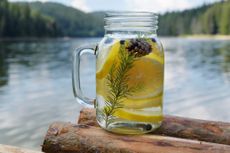
Harvesting Pine Needles : Why Should You Harvest Pine Needles
There are many pine needle uses in the landscape as a weed repellent, mulch, soil acidifier, and even to line paths and stabilize soil. For some tips on harvesting pine needles for edible, medicinal or outdoor garden use, click on the following article.
By Bonnie L. Grant
-

Harvesting Pine Needles : Why Should You Harvest Pine Needles
There are so many ways to use pine needles. Learn the best ways to collect and harvest them and how to make the best use of this natural resource.
By Bonnie L. Grant
-
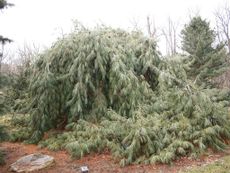
Pendula Information – Tips On How To Grow A Weeping White Pine Tree
The most famous weeping tree might be the weeping willow. On the other hand, you may never have heard of weeping white pine. What is a weeping white pine? Click this article for information on "Pendula" and tips on how to grow a weeping white pine.
By Teo Spengler
-
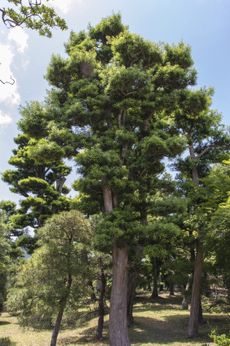
Japanese Black Pine Information – Growing Japanese Black Pine Trees
Japanese black pine is ideal for coastal landscapes where it grows to heights of 20 feet (6 m.). When grown further inland, it can reach a remarkable height of 100 feet (30.5 m.). Find out more about this big, beautiful tree in the article that follows.
By Jackie Carroll
-
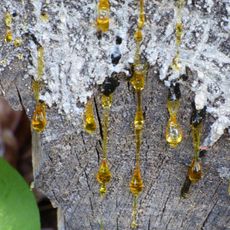
Pine Tree Sap Season: Pine Tree Sap Uses And Information
Most trees produce sap, and pine is no exception. Pine trees are coniferous trees that have long needles. These resilient trees often live and thrive at elevations and in climates where other tree species cannot. Click here for more information about pine trees and sap.
By Teo Spengler
-
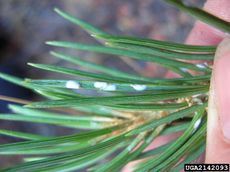
What Is Pine Needle Scale: How To Control Pine Needle Scale
Scale on pines can take down even the biggest, most vigorous tree over time. What is pine needle scale? Find information in this article and we'll learn together the signs and pine needle scale control for this silent killer. Click here.
By Bonnie L. Grant
-
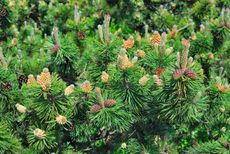
Pruning Mugo Pines: Do Mugo Pines Need To Be Pruned
Do mugo pines need to be pruned? While mugo pine pruning is not necessary for the plant to develop a strong branch structure, many gardeners trim their trees to make them shorter and more compact. For more information on pruning mugo pines, click here.
By Teo Spengler
-
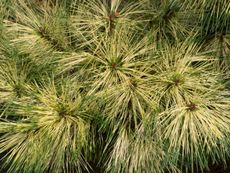
Japanese Red Pine Info – How To Grow A Japanese Red Pine Tree
Japanese red pine is a very attractive, interesting-looking specimen tree native to East Asia but currently grown all over the U.S. Learn more Japanese red pine info, including Japanese red pine care and how to grow a Japanese red pine tree in this article.
By Liz Baessler
-
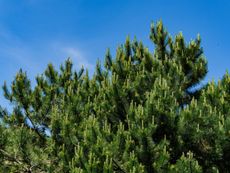
Austrian Pine Information: Learn About The Cultivation Of Austrian Pine Trees
Austrian pine trees are also called European black pines, and that common name more accurately reflects its native habitat. A handsome conifer with dark, dense foliage, the tree's lowest branches can touch the ground. Learn more in this article.
By Teo Spengler
-
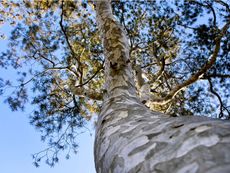
What Is A Lacebark Pine: Learn About Lacebark Pine Trees
Lacebark pine is suitable for growing in USDA plant hardiness zones 4 through 8. The pine trees are appreciated for their pyramidal, somewhat rounded shape, and striking bark. Click this article for more lacebark pine information.
By Mary H. Dyer
-
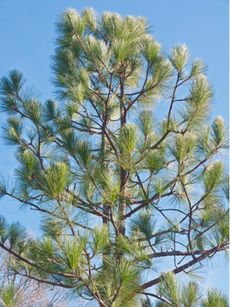
What Is A Longleaf Pine Tree - Longleaf Pine Care Guide
Are you interested in learning some longleaf pine facts? Read on. We’ll give you info on the longleaf pine growth rate as well as the cultural care it requires.
By Teo Spengler
-
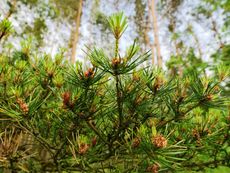
Scotch Pine Information – Tips For Planting Scotch Pines In Landscapes
The mighty Scotch pine is a rugged evergreen tree native to Europe. It grows across a large portion of North America and has an attractive and distinctive look, but it's not always a good choice for the home landscape in some areas. Learn more here.
By Liz Baessler
-
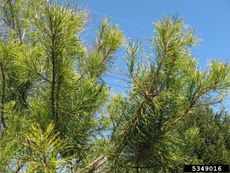
Virginia Pine Tree Information – Tips On Growing Virginia Pine Trees
Virginia pine trees in the landscape are primarily used as barriers, naturalized forests, and inexpensive, slow-growing forests. Interestingly, the trees are grown in the south as Christmas trees. Learn more about them in this article.
By Bonnie L. Grant
-
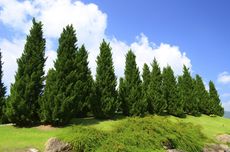
What Is A Cedar Pine: Tips On Planting Cedar Pine Hedges
The branches of cedar pine grow low enough to make this tree an excellent choice for a wind row or tall hedgerow. If you are thinking of planting cedar pine hedges, read this article for additional cedar pine tree information.
By Teo Spengler
-
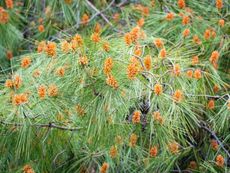
Aleppo Pine Information: How To Grow An Aleppo Pine Tree
Aleppo pine trees require a warm climate to thrive. When you see cultivated Aleppo pines in the landscape, they will usually be in parks or commercial areas, not home gardens. For more Aleppo pine information, click on the following article.
By Teo Spengler
